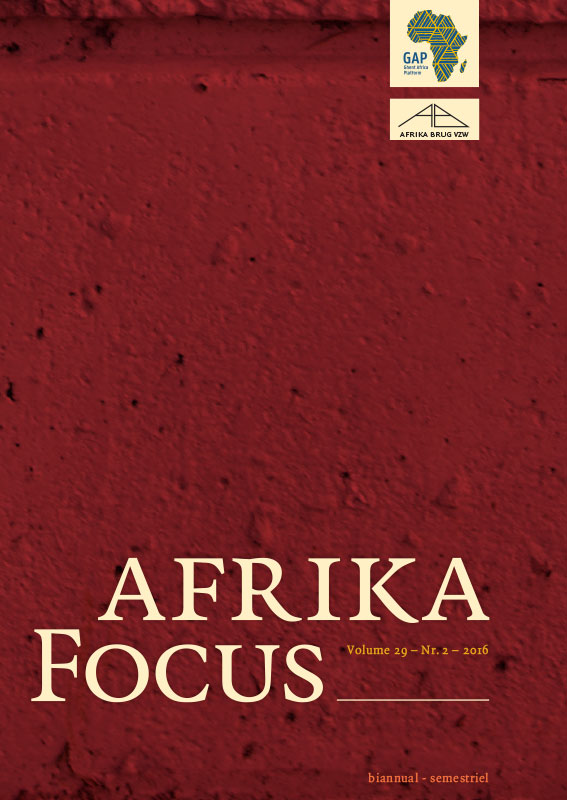Modern museums in the palaces of the western Grasfields, Cameroon
DOI:
https://doi.org/10.21825/af.v29i2.4843Abstract
This paper suggests that the recent interest in modern museums in the palaces of the Grassfields is obscurely associated with the need to transform the palaces and, more importantly to address the multiple problems plaguing the royal treasury or traditional palace museums. The paper argues that unlike the royal treasury, the modern museum is significant, partly because it constitutes a democratic space, and partly because it articulates and can be associated with the irony of change and continuity. Method: The findings are based on qualitative data collected from documents and from ethnographic studies on the emergence of modern museums across the region. Results: The paper has contributed to the scholarship on Cameroon, and, in particular, extended Michael Rowlands’ (2008) seminal work on curating postcolonial pasts in the Grass elds by unveiling the modern museum as a democratic lens through which to view the undemocratic royal treasury. Policy implications: The study suggests among others, the need for the Grassfields population to embrace the modern museum – and to see it as a continuation of the royal treasury. The practical implication is to tailor the modern museum to the socio-cultural needs of the target population-particularly women and youths since they are generally excluded from the activities of the royal treasury. Key words : royal treasury, museum, Cameroon, Grassfields, Bambui, youthsDownloads
Published
How to Cite
Issue
Section
License
Authors who publish with this journal agree to the following terms
Authors retain copyright and grant the journal right of first publication with the work simultaneously licensed under a Creative Commons Attribution License that allows others to share the work with an acknowledgement of the work's authorship and initial publication in this journal.
Authors are able to enter into separate, additional contractual arrangements for the non-exclusive distribution of the journal's published version of the work (e.g., post it to an institutional repository or publish it in a book), with an acknowledgement of its initial publication in this journal.
Authors are permitted and encouraged to post their work online (e.g., in institutional repositories or on their website) prior to and during the submission process, as it can lead to productive exchanges, as well as earlier and greater citation of published work (See The Effect of Open Access).


